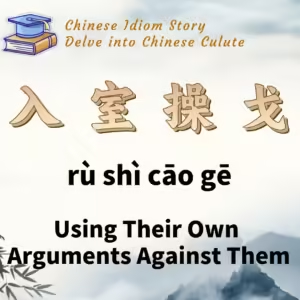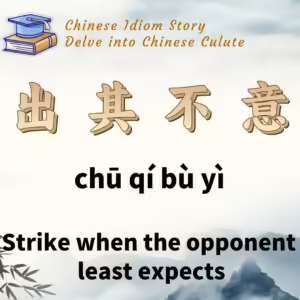
Chinese Idiom: 入室操戈 (Ru Shi Cao Ge)
English Translation: Using Their Own Arguments Against Them
pīn yīn: rù shì cāo gē
Idiom Meaning: Refers to using an opponent’s arguments to criticize or refute them. “操” (cāo) means “to wield” and “戈” (gē) means “a spear” or “weapon.”
Historical Source: Book of the Later Han: Biography of Zheng Xuan (后汉书·郑玄传)
Idiom Story: The idiom “入室操戈” (rù shì cāo gē) originates from a story about Zheng Xuan, a renowned scholar of the Eastern Han Dynasty. Zheng Xuan, originally from North Sea Gaomi (modern-day Gaomi City, Shandong Province), was known for his dedication to scholarly pursuits over official duties. His father, despite his frequent reprimands, could not sway Zheng from his academic ambitions, leading him to study in various prestigious institutions and under celebrated teachers.
Upon returning home, Zheng Xuan befriended He Xiu, a noted scholar of the time. He Xiu, eager to share his research, gave Zheng Xuan three of his works: The Confucian Analects of Gongyang, The Book of Rites by Leftovers, and The Book of Valley Disease. Zheng Xuan, however, strongly disagreed with He Xiu’s viewpoints. Instead of merely offering critique, he wrote counter-essays: Refuting “Mǒshǒu”, Targeting “Kāohuāng”, and Eliminating “Fèijí”, addressing and refuting each of He Xiu’s arguments directly.
Upon reading Zheng Xuan’s critiques, He Xiu remarked, “康成入吾室,操吾矛以伐我乎?” which translates to “Zheng Xuan has entered my chamber and wielded my own spear against me!” This expression conveyed his astonishment and frustration at being attacked with his own arguments.
The phrase was later condensed to “入室操戈,” which describes the act of using someone’s own arguments or tactics against them in criticism or debate.






